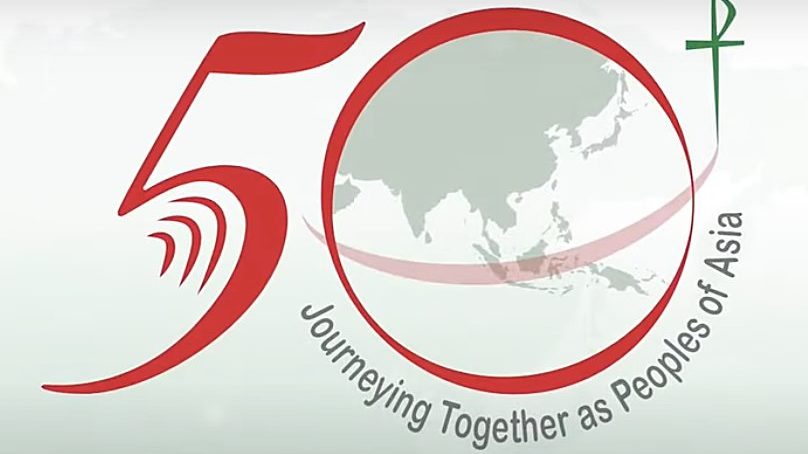Churches in Asia need to play an active role in addressing pressing realities including migrants, refugees, indigenous peoples, climate change, family issues, women and youth, Asian bishops said in their continental synod document.
The leaders of the Federation of Asian Bishops' Conferences released the 40-page "Bangkok Document" March 15 during an online ceremony. It is a compilation of the discussions held during the federation's general conference in the Thai capital last October.
The Oct. 12-30 gathering, which also marked the federation’s golden jubilee, drew church leaders and delegates from about 29 countries. The meeting was followed up with the Asian Continental Synod Assembly Feb. 24-26.
The document is to be presented during the synod on synodality at the Vatican.
During the launch, federation president Cardinal Charles Bo of Yangon, Myanmar, said the document highlights the Asian Church's "journey together by responding to the call of ideality, reflecting on the various emerging realities confronting the church in Asia, and envisioning new pathways for the future."
Its former president, Cardinal Oswald Gracias of Bombay, said the document is not a "finished product (but) the beginning of (the) journey" and urged all to approach it as "a spiritual document."
"To my mind, it is a spiritual document, a document for prayer, for discernment, for spiritual conversation," the prelate said.
Federation secretary-general Archbishop Tarcisius Isao Kikuchi of Tokyo, clergy, laity and media personnel from across the globe joined the virtual launch.
Filipino Bishop Pablo Virgilio David of Kalookan, the coordinator of the documentation committee, said the "Bangkok Document" is divided into five parts based on the biblical narrative of the three Magi, who are journeying together, looking, discerning, offering gifts and making new pathways.
The first part is titled "Journeying" and draws inspiration from the synod on synodality, he said.
"Synodality's basic principles of communion, participation and mission have actually given a fuller expression and affirmation to FABC's long-standing affirmation to triple dialogue: namely with religion, culture and the poor of Asia," Bishop David said.
The second part, titled "Looking," takes a "serious phenomenological look at the emerging realities confronting the churches in Asia," he pointed out.
The section deals with nine of the most important realities in Asian societies -- migrants, refugees and Indigenous people displaced from their homelands, families, gender issues, the role of women, youth, the impact of digital technology, promotion of an equitable economy, climate crisis and interreligious dialogue.
The third part, titled "Discerning," deals with the answer to the question of "what the Spirit is telling the churches in Asia in the present times."
The fourth section, "Offering Our Gifts," reflects on what Asia can contribute to the universal church specifically focusing on Asian culture and spirituality drawing inspiration from St. John Paul II's apostolic exhortation "Ecclesia in Asia."
The last part is titled "Following New Pathways" and aims to "articulate the new directions that the federation feels it is called to undertake in the wider dynamics of the life and mission of the church in Asia."
The continental synod in the last section identified five pathways that it aims to take: from dominative to "inculturated" evangelization; from basic Christian communities to ecclesial communities that promote basic human communities; from dialogue to synodality; from proclamation to storytelling; and from beaten tracks to new pastoral priorities.
Bishop David pointed out that the "Bangkok Document" "underscores the new pathways that had been taken by the 16th-century Italian Jesuits Matteo Ricci and Alessandro Valignano."
Fathers Ricci and Valignano and other missionaries in the 16th and 17th centuries "chose to follow a different pathway in their approaches to mission," Bishop David said.
He said the FABC seeks to follow the footsteps of figures such as Father Ricci who chose "interreligious and intercultural dialogue" rather than the more convenient way of "royal patronage" for evangelizing the newly found peoples.
The "Bangkok Document" will be circulated across all dioceses and parishes in Asia, and it is open for further improvements, FABC officials said during the press conference.

